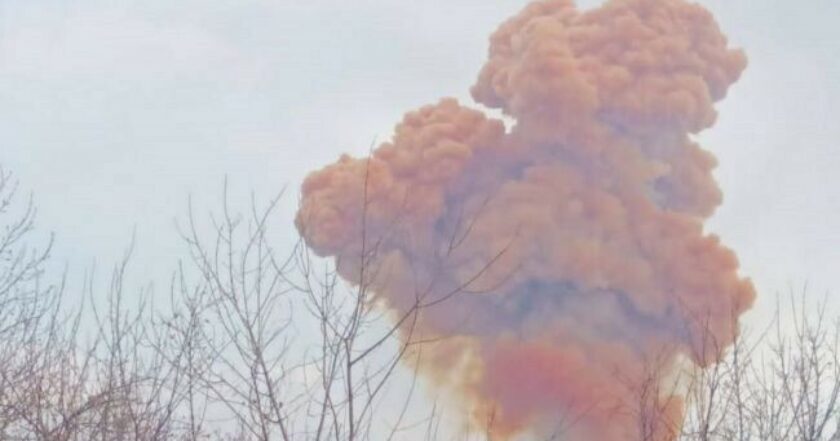US confirms Russian troops' use of chemical weapons on Ukraine's armed forces

Photo: open sources
The USA has issued fresh sanctions against Russia for breaking the international ban on chemical weapons through their use of chloropicrin against the Ukrainian military.
This is reported on the US State Department website.
"The use of such chemicals is not an isolated incident and is probably caused by the desire of Russian forces to dislodge Ukrainian forces from fortified positions and achieve tactical advantages on the battlefield," the State Department stated.
Chloropicrin is a highly irritating chemical affecting the eyes, skin, and lungs. It was initially used in the First World War but is now primarily used as a pesticide in agriculture. However, its use as a weapon is prohibited under the 1993 Chemical Weapons Convention.
The US statement announced the implementation of sanctions on the following entities:
- the Russian Ministry of Defense's troops for radiation, chemical, and biological protection;
- the Russian Research Institute of Applied Acoustics;
- the 48th Central Research Institute under the Russian Ministry of Defense;
- four companies connected to Russian programs involving chemical and biological weapons.
The sanctions freeze any US assets belonging to the said entities and generally prohibit Americans from doing business with them.
According to the US, Russia also used chloropicrin to suppress mass protests in the country.
In addition to chloropicrin, Russian troops used grenades loaded with tear gas, Reuters reported with reference to the Ukrainian military. The agency added that at least 500 Ukrainian soldiers suffered from toxic poisoning, and one of them died after suffocating from tear gas.
For reference:
Russian troops systematically use illegal chemical weapons to attack the Ukrainian military.
Since the beginning of the large-scale war, as of March, the Russian army has carried out 1,068 chemical attacks in Ukraine.
In February 2024, there were a total of 250 recorded cases, including:
- 244 incidents involving the use of VOG grenades;
- 1 case where gas was deployed;
- 5 cases of using other ammunition containing chemical substances.
Intelligence units of radiation, chemical, and bacteriological reconnaissance conduct sampling of soil, vegetation, and ammunition fragments and send them for analysis.
As previously reported, at the front, the Russian army began to use chemical weapons more often, in particular, a new type of grenade with poisonous substances.
"In December, the use of the RG-Vo grenade was recorded for the first time. This grenade contains chloroacetophenone, a substance with an asphyxiating effect, prohibited by the Geneva Protocol on the Use of Asphyxiating, Poisonous or Other Similar Gases in War," said Captain Andrii Rudyk, a representative of the Research Center for Trophy and Prospective Weapons and Military Equipment.
According to the Center for Research on Ordnance and Military Gear, five minutes is sufficient to eliminate any individuals in a room or bunker upon entry.
The studied sample was manufactured in 2023 at a factory that has been operating since the time of the Soviet Union.
It was also reported that the Ukrainian military, repelling Russian aggression in the Zaporizhzhia region, faced a new threat – the use of poison gas as a weapon by the occupiers.
According to an anonymous Ukrainian intelligence official, the Russians have been using a type of tear gas known as CS during mass riots. This gas can cause temporary incapacitation by irritating the eyes, nose, lungs, and skin.
It is noted that the UN Convention on the Prohibition of Chemical Weapons prohibits the use of means of combating mass unrest during war.





















































